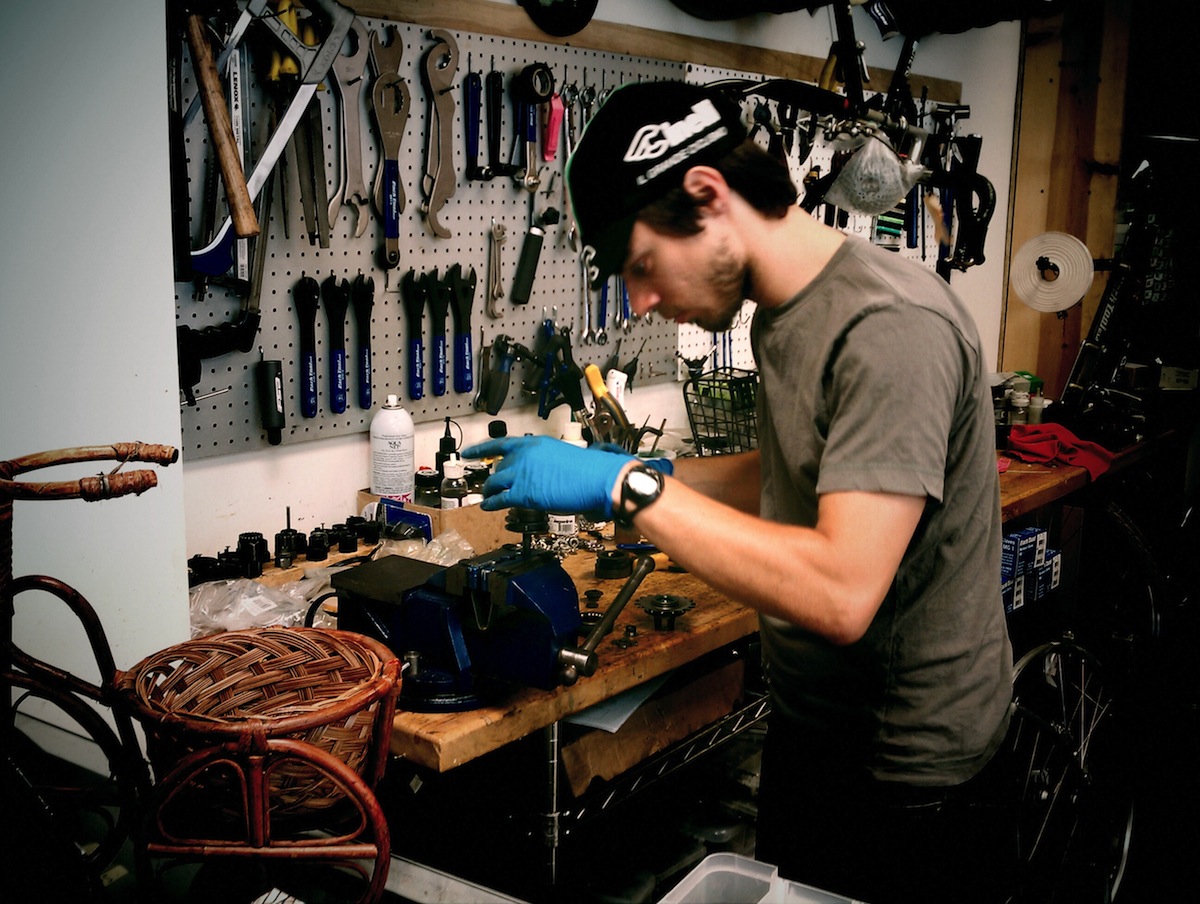Why Doesn’t Boston Have a ‘Bike Kitchen’?
Anyone who owns a bike knows that regular maintenance can get costly, especially in the summer months when cyclists are commuting through the city more often. But what if there were a place where cyclists could take their bikes and learn how to make repairs on their own, giving them a chance to save money while at the same time connecting with other riders?
That’s exactly what members of several non-profit bike advocacy groups would like to open here in Boston, but one major roadblock keeps getting in their way: finding an affordable space to set one up.
“If someone came forward and had a place available, we would totally go for it,” said Pete Stidman, executive director of the Boston Cyclists Union. “We have everything we need and have the volunteers to do it. If we had funding to pay rent, or some space that was super cheap, we could do it.”
Stidman said the group would like to start what’s become known as a “Bike Kitchen,” which is a public, community-driven space run by groups of volunteers where cyclists of all ages can go to get hands-on experience fixing their bikes at a low cost. The facilities, which are opening up all over the country—they’re in California, Washington, and Maryland—typically have all of the necessary tools needed to do basic bike maintenance, and are accessible to riders on a daily basis, almost like a community garden or co-op.
“You go in and pay, and then they do what they want to do,” said Stidman. “People have access to parts and can learn how to do things—it’s the cheapest way to fix your bike and do it yourself.”
Boston used to have the luxury of a little-known fringe “Bike Kitchen” in Jamaica Plain, called the Community Spoke, but after losing their headquarters last year to make way for a new development, and then running into repeated problems finding a new location in Allston and the Back Bay, their shop is no longer up and running. The group, like the Boston Cyclists Union, is still looking for a new space, according to their Facebook page.
“It’s something I think that Boston could benefit from in terms of collective activities,” said Ryan, who declined to give his last name, a friend of the operators of the former Community Spoke bike kitchen and a full-time employee of Bikes Not Bombs.
Ryan said “with Boston being the way that it is,” it’s difficult to find an affordable location for headquarters because “most property owners are in a constant bid war,” or landlords are looking to maximize rent.
“As somebody who was a volunteer at Community Spoke, I have a high interest in finding a new space. That’s something that my close circle of friends and current members of Community Spoke didn’t want to see go away at all. They were trying really hard to keep the space going,” he said.
The Boston Cyclists Union already runs outdoor bike clinics under tents at farmer’s market locations and select neighborhoods, but those are done on a limited basis and are seasonal. They also don’t afford much space in terms of keeping tools and bike parts. Bikes Not Bombs hosts their own community classes, and while free, those, too, are done sporadically.
The closest thing to a so-called “Bike Kitchen” to Boston is a new community space that recently opened up in Lawrence.
Called the “Lawrence BiciCocina,” run by the Merrimack Valley YMCA and local volunteers, the workshop offers low-cost repairs, refurbished bikes, and educational opportunities for kids and adults, according to their website.
“The focus is on strengthening community through youth development, healthy living, and social responsibility,” the group said of their mission.
While Community Spoke in Jamaica Plain didn’t have adequate funding for either supplies or rent, the Boston Cyclists Union has most of the resources—including liability insurance—to open a bike kitchen like the Lawrence BiciCocina locally, said Stidman.
What it comes down to in the end, said Stidman, is finding a permanent place to call home. “Because these places run on volunteer staff, the costs are pretty low. It’s just the space,” he said.



